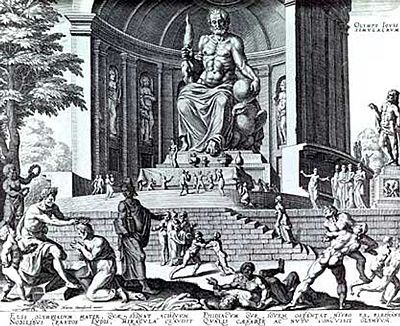 |
|
|
|
||||
|
|
| Would you like to live in China, Russia, Africa, a theocratically led area? Or would you dare to be a European in an area with history of great artistic, literary, social and intellectual movements; an area where philosophy and humanism is practiced; an area that showed resilience after miseries; an area dealing with meaning and dignity; an area known for 'the Chariot'; and an area to play a pioneering role in the world. That would be its true essence: care for the soul and a guide to the future. |
|
|
The maiden Europa rests atop a white bull, unaware it is the god Zeus in disguise. According to the tale in Ovid's Metamorphoses, soon the animal will abduct her across the waves. Until then, she and her attendants festoon the seemingly innocent beast with flowers, while her blue drapery flutters in the breeze. |
| DASHBOARD |
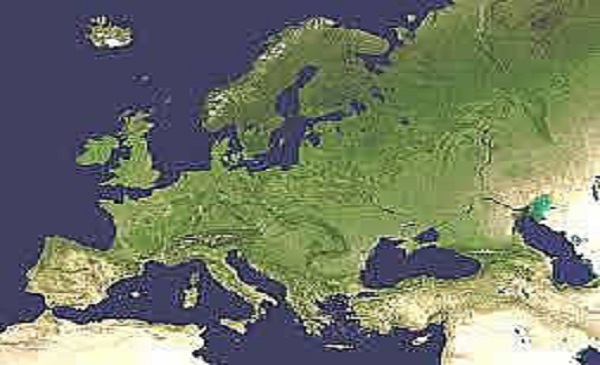 |
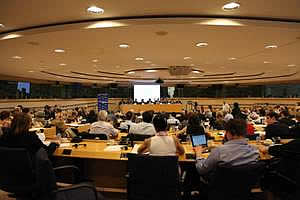 |
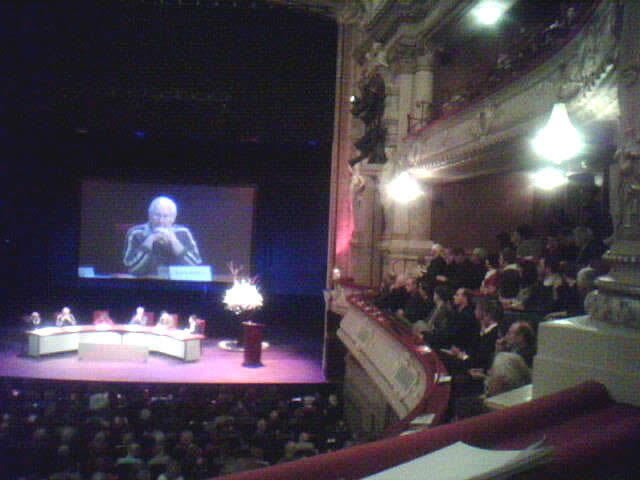 |
 |
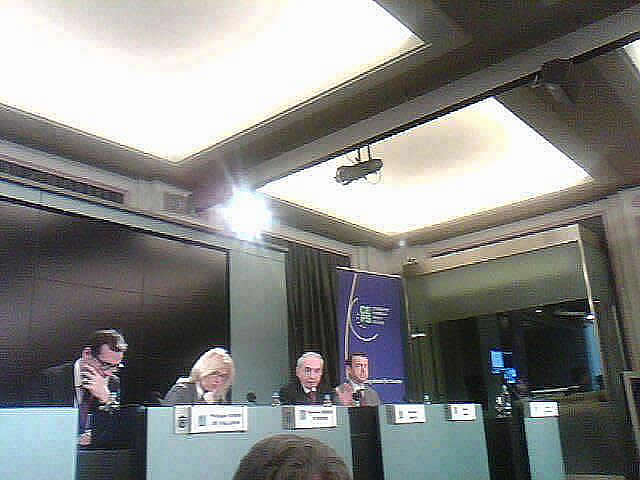 |
|
 |
 |
|||||
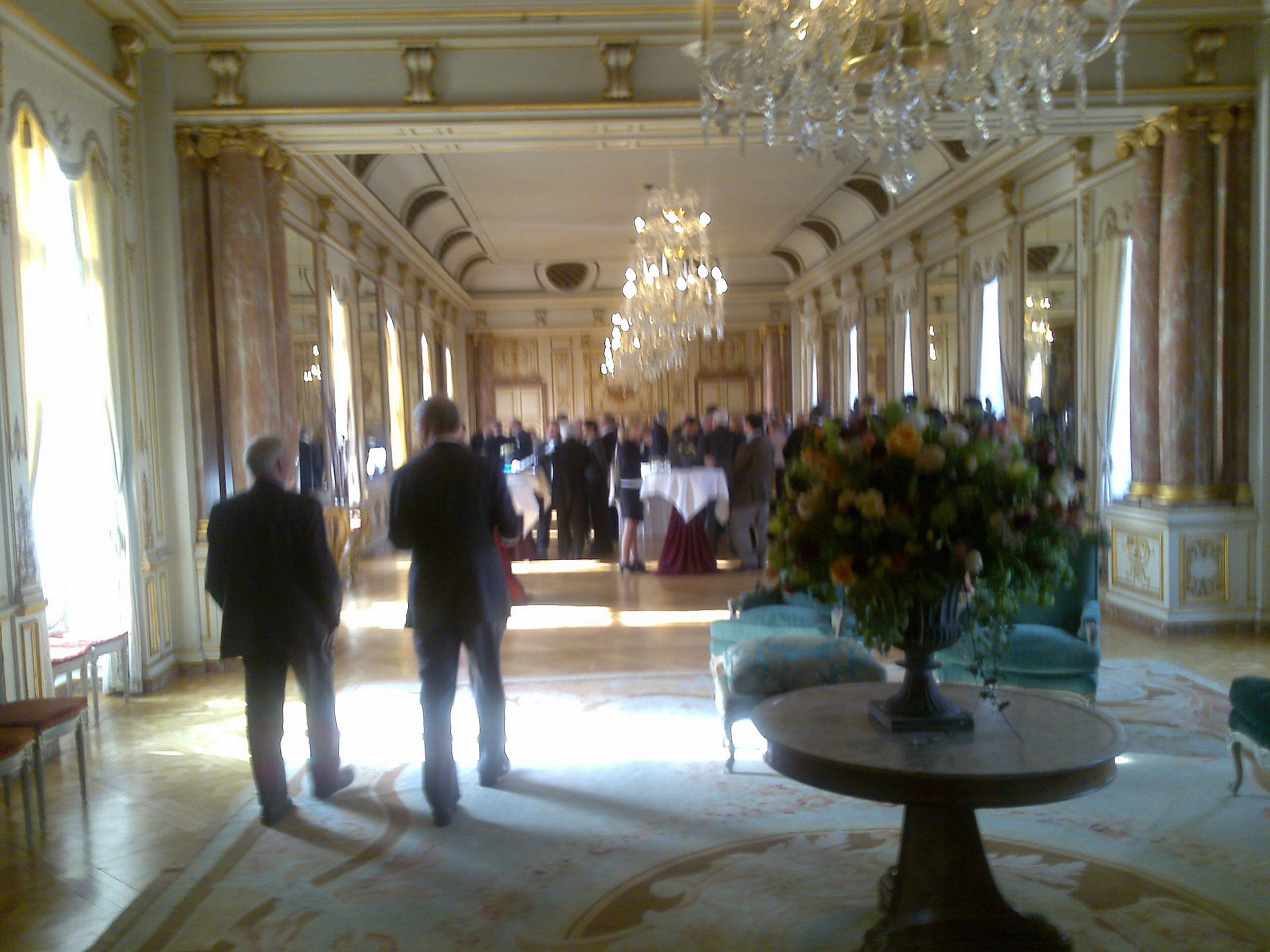 |
 |
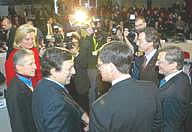 |
|
|
|
 |
 |
|||||
 |
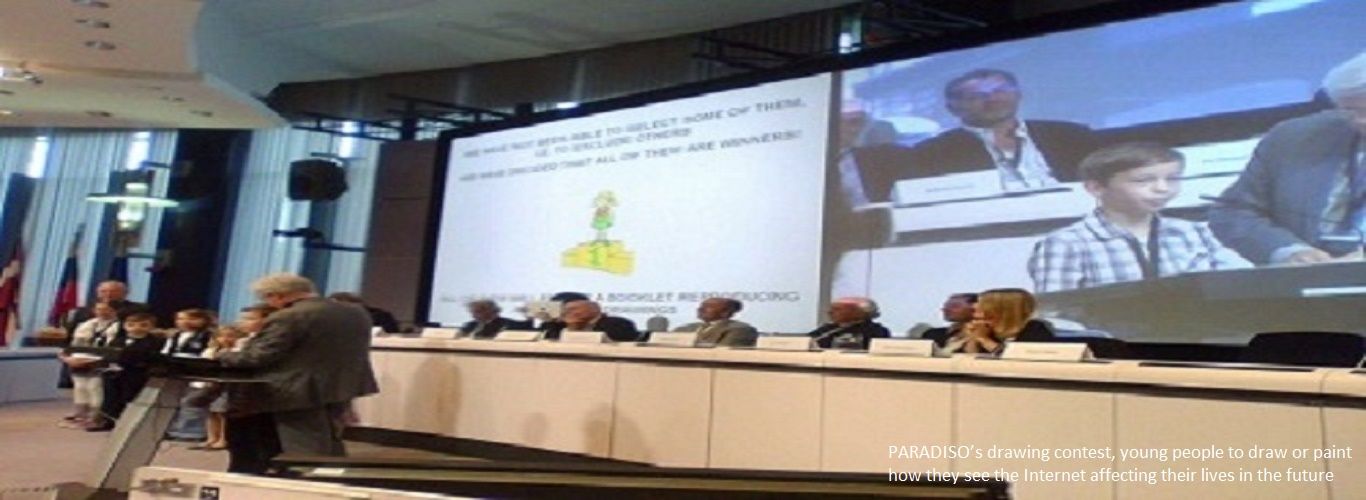 |
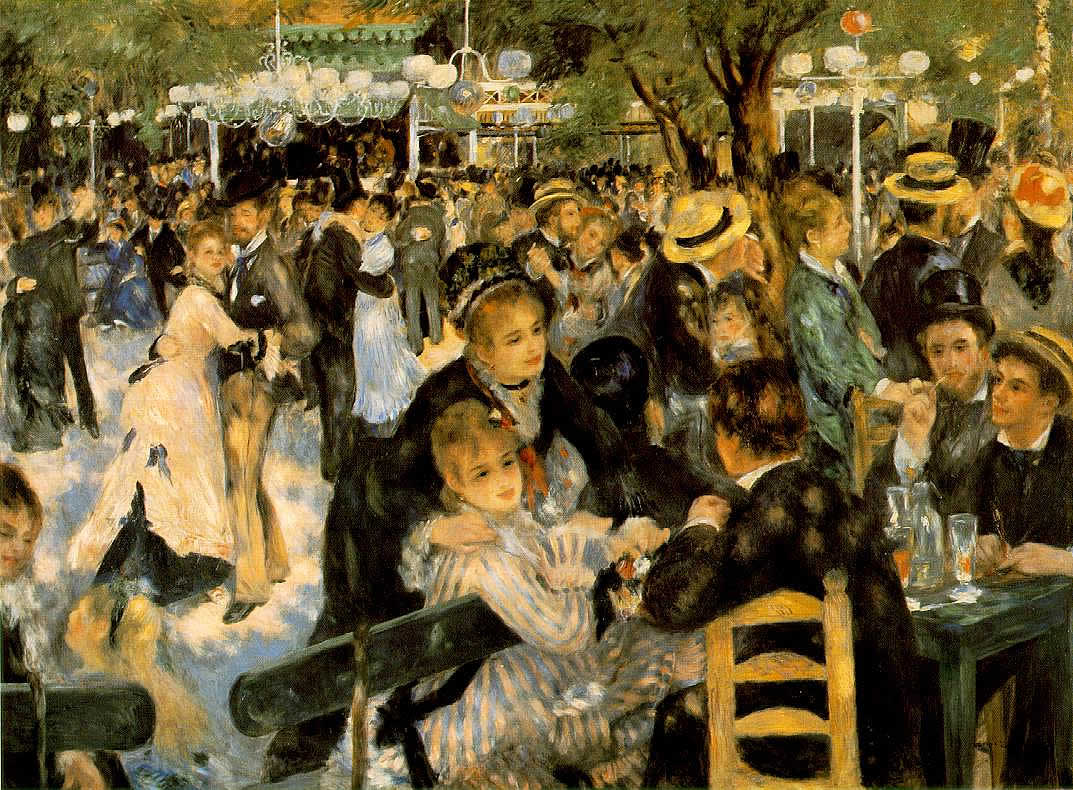 |
|
 |
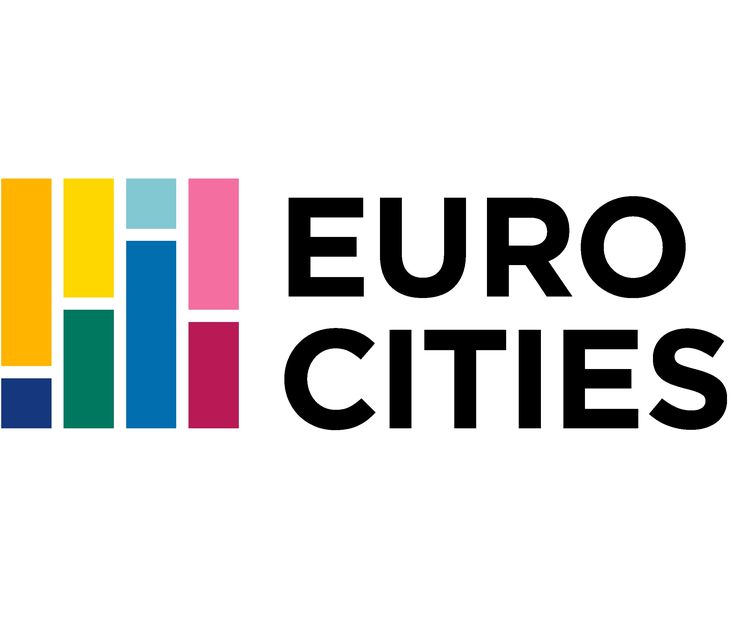 |
 |
 |
 |
Europe geographically
Europe is one of the seven traditional continents of the Earth. Physically and geologically, Europe is the westernmost peninsula of Eurasia, west of Asia. Europe is bound to the north by the Arctic Ocean, to the west by the Atlantic Ocean, to the south by the Mediterranean Sea, to the southeast by the Caucasus Mountains and the Black Sea and the waterways connecting the Black Sea to the Mediterranean. To the east, Europe is generally divided from Asia by the water divide of the Ural Mountains, the Ural River, and by the Caspian Sea. Iceland, though nearer to Greenland (North America) than mainland Europe, is generally included in Europe. There is ongoing debate on where the geographical centre of Europe is. In terms of population, it is the third-largest continent (after Asia and Africa) with a population of about 11% of the world's population. The term continent can refer to a cultural and political distinction or a physiographic one, leading to various perspectives about Europe's precise borders, area, and population. |
Europa is also, daughter of a royal couple, coming from Phoenicia, who lived during childhood near the land of the Biblical places Tyre and Sidon (now Lebanon) to the Mediterranean Sea. In Greek mythology, Europa was a Phoenician princess who was abducted by Zeus in bull form and taken to the island of Crete, where she gave birth to Minos, Rhadamanthus and Sarpedon. For Homer, Europe was a mythological queen of Crete, not a geographical designation. Later Europa stood for mainland Greece and by 500 BC its meaning had been extended to lands to the north. Europe is an open society and the birthplace of the Council of Europe (already coined in 1623) and the European Union. |
In etymology one theory suggests the name Europe is derived from the Greek words meaning broad (eurys) and face (ops) – broad having been an epithet of Earth itself in the reconstructed Proto-Indo-European religion. A minority, however, suggest this Greek popular etymology is really based on a Semitic word such as the Akkadian erebu meaning "sunset", cognate to Arabic maghreb, Hebrew ma'ariv. From the Middle Eastern vantage point, the sun does set over Europe, the lands to the west. Likewise, Asia is sometimes thought to have derived from a Semitic word such as the Akkadian asu, meaning "sunrise", and is the land to the east from a Middle Eastern perspective. For centuries, the Turks used the term Frengistan (land of the Franks) in referring to Europe. The majority of major world languages use words derived from "Europa" to refer to the continent. |
The origins of Western democratic and individualistic culture are often attributed to Ancient Greece, though numerous other distinct influences, in particular Christianity, can also be credited with the spread of concepts such as egalitarianism and universality of law. After the decline of the Roman Empire, Europe entered a long period of changes arising from what is known as the Age of Migrations. That period has been known as the "Dark Ages" to Renaissance thinkers. Isolated monastic communities in Great Britain, Ireland and elsewhere carefully safeguarded and compiled written knowledge accumulated previously. During this time, the western part of the Roman Empire was 'reborn' as the Holy Roman Empire, later called Holy Roman Empire of the German Nation. The eastern part of the Roman Empire became known in the west as the Byzantine Empire. |
| CEPS Ideas Lab 2025 |
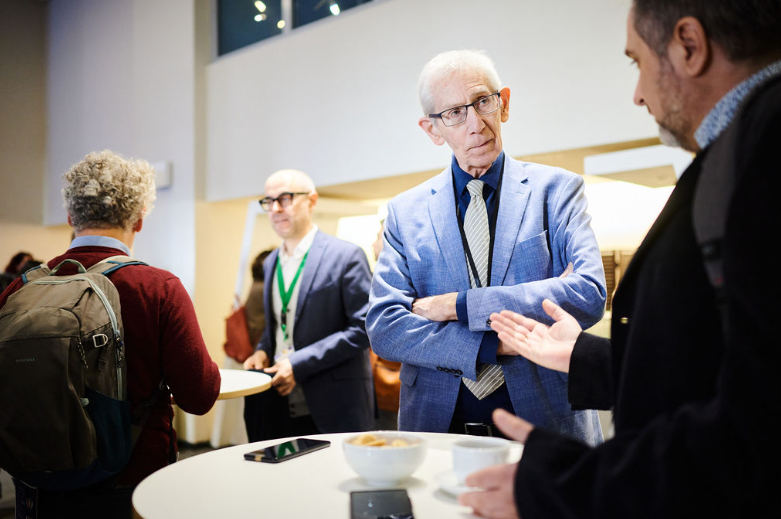 |
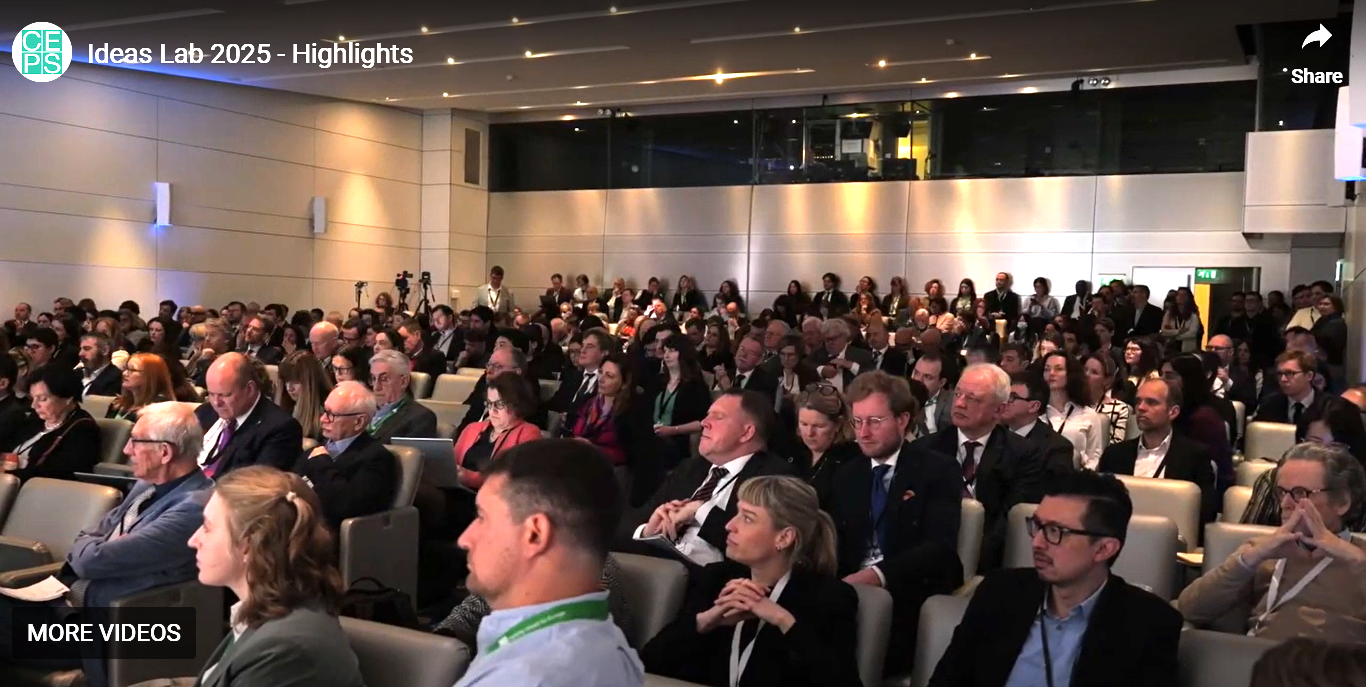 |
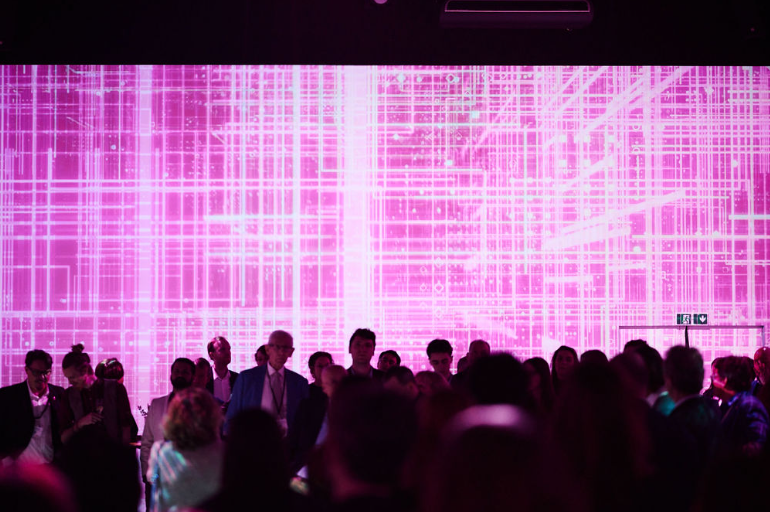 |
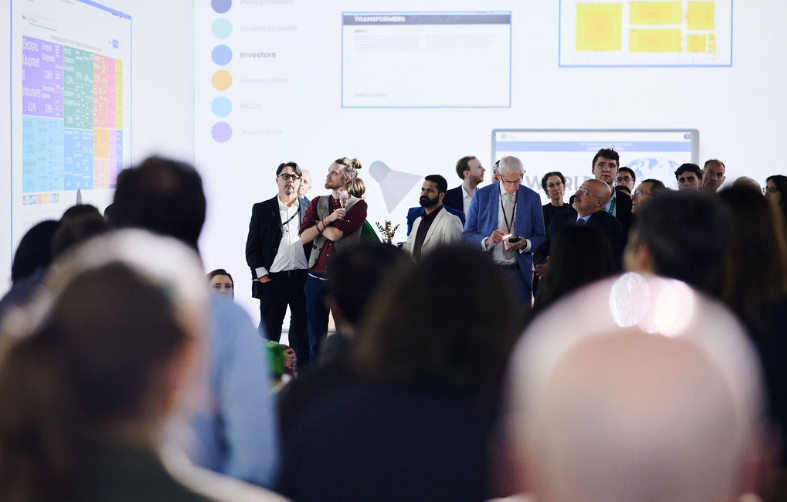 |
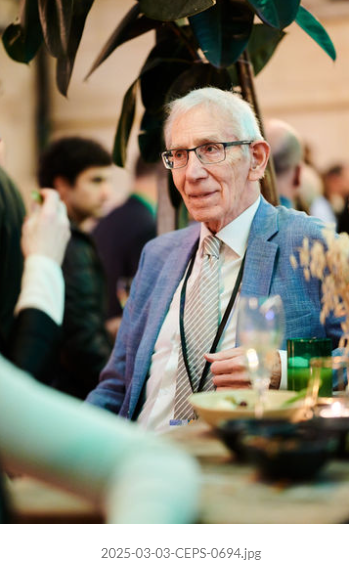 |
|
|
|
|
|
|
|
|
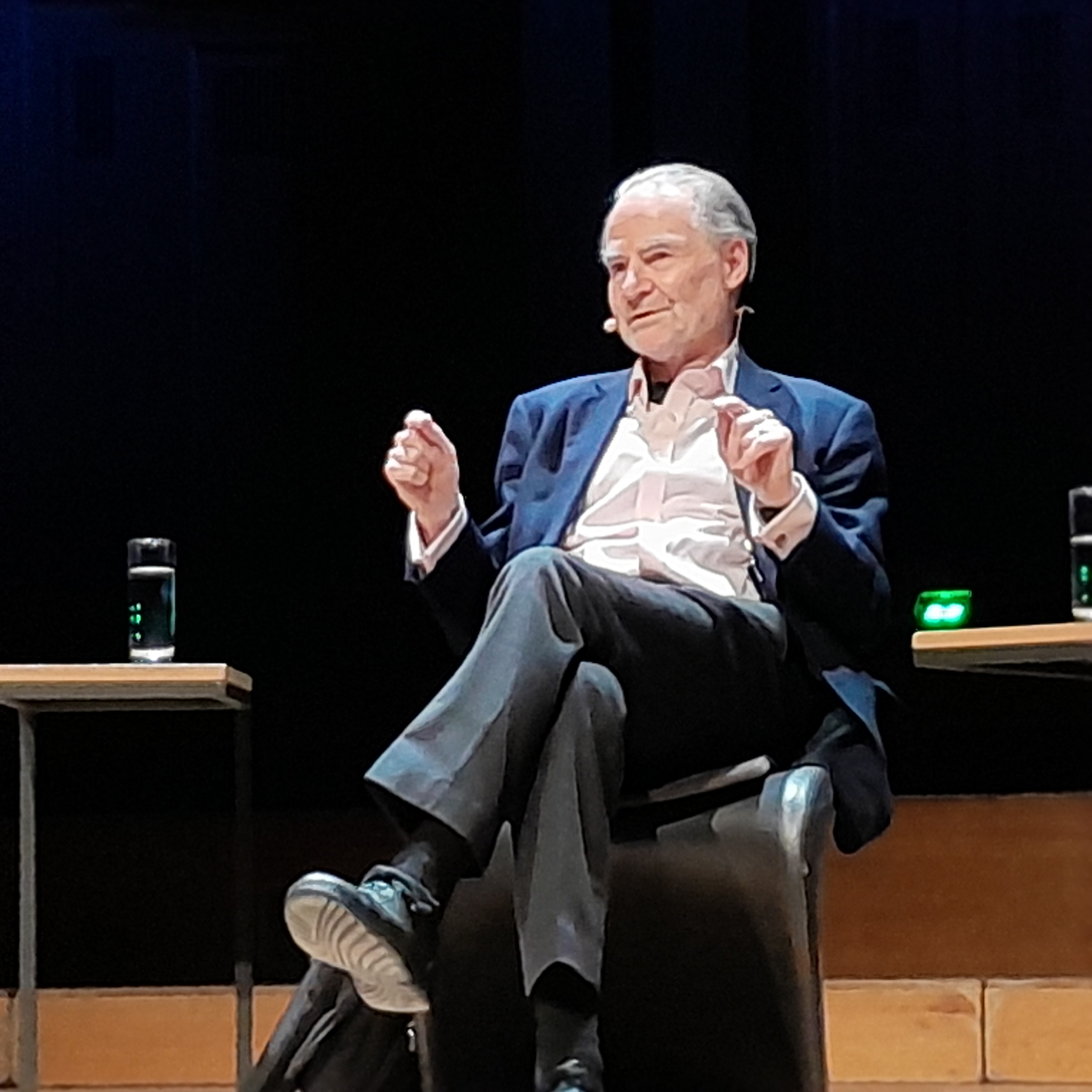 |
Conversation with British author and historian Timothy Garton Ash about "the beginning of a new era"
The war in Ukraine continues in all its intensity, how can Europe prepare and are we prepared for the seriousness of the situation to begin with? British historian and author Timothy Garton Ash is concerned: “There is a 'post-wall' period that runs from 1989 to the war in Ukraine. What we do now will determine the European order for decades to come. |
The conversation was part of the IDEASLab, a 2-days annual high-level meeting of CEPS, presenting innovative ideas that spur European policymaking forward and help CEPS to fulfil its guiding mantra: to think ahead for Europe (and the world). See the report to get an impression of the professional atmosphere. Alongside hard-hitting plenary sessions featuring high-level speakers from academia, institutions and the private sector, organised were 24 dynamic, interactive closed-door sessions and mostly without the use of slides or other audiovisual supports. 7 of these 24 sessions were dedicated to brand new ideas to be considered by policymakers, including the new EU leaders that will begin their mandates towards the end of 2024. |
| Three Seas |
| The countries involved in Three Seas share the same objectives: economic growth, security and a stronger and more cohesive Europe. To achieve these goals, cooperation is promoted for the development of infrastructure in the energy, transport, and digital sectors. |
| Cooperation between the Three Seas countries and their partners will result in a stronger, more united and more internationally competitive Europe |
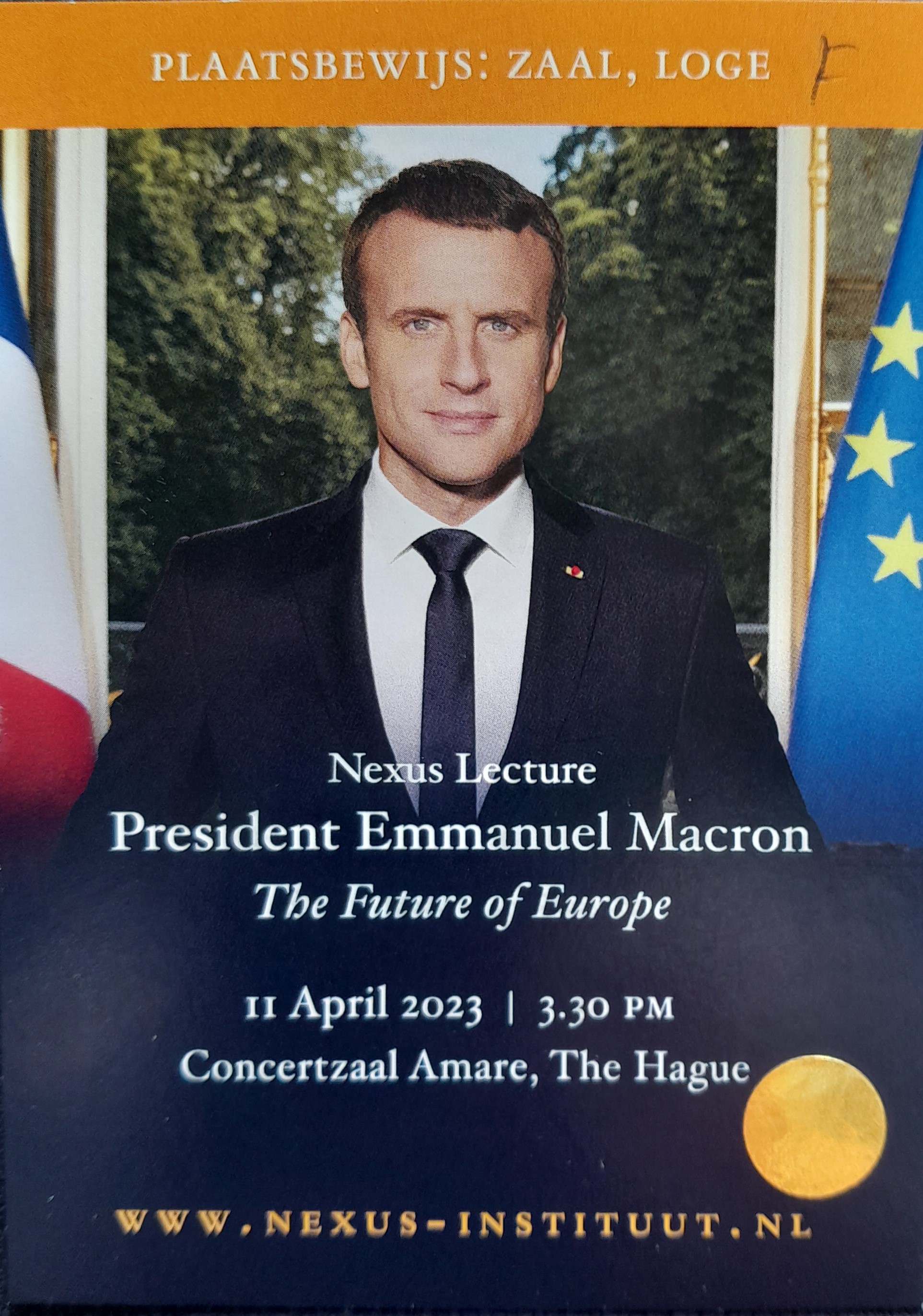
Exactly 75 years after the Congress of Europe took place in The Hague – where Winston Churchill, Konrad Adenauer, Raymond Aron, Bertrand Russell, a young François Mitterrand, and other politicians and intellectuals sowed the seeds of what would become the European Union – and exactly 20 years after George Steiner’s famous Nexus Lecture The Idea of Europe, President Emmanuel Macron unfolded his ideas about the future of Europe, as part of his State Visit to the Netherlands. |
To achieve it, Europe has ceased to be naïve. It can now defend its interests, its values and its independence. → Advancing European industrial policy means better protecting our companies. This is the thrust of our strategy to combat distortions of competition, reduce our strategic dependencies, and protect our intellectual property. → The Net Zero Industry Act by simplifying our rules and procedures will allow us to accelerate the development of our industries that contribute to the climate transition. → A sector so essential for our industries, our economies and our societies, Europe had to invest in the semiconductors of the future. With the Chips Act, we stay in the race. In France, we are going to double our production capacities by 2030. More than 5,000 jobs will be created! This is essential, both to protect European consumers through strong standards that we already impose on ourselves, and for our businesses in the face of unfair competition. → In each trade negotiation, we must integrate sustainability criteria such as compliance with the Paris Agreement and the preservation of biodiversity, equity, balance, compatibility with our strategic interests. This is consistent with our climate goals and we will benefit from it mutually. We work for fair conditions of competition for our companies, for compliance by third countries with ambitious standards and universal values. A Europe that defends its interests and its values, remains in control of its destiny, creates jobs, successfully completes its climate transition, this is what we are building.” |
President Macron’s Initiative for Europe: A sovereign, united, democratic Europe (26.09.17) Faced with the great challenges of our times, such as defence and security, great migrations, development, climate change, the digital revolution and regulation of a globalized economy, have European countries found means to defend their interests and values, and to guarantee and adapt their democratic and social model that is unique worldwide? Can they address each of these challenges alone? We cannot afford to keep the same policies, the same habits, the same procedures and the same budget. No more can we choose to turn inwards within national borders.Contents: A sovereign Europe | A united Europe | A democratic Europe | What Europe for 2024?Further readings: - Franco-German non-paper on key questions and guidelines |
06 APR 2023
Moving Europe from darkness into light Organised by CEPS, the aim of Ideas Lab is to provide a high-level intellectual forum for exchanges concerning the wide range of current and pressing issues faced by the EU. The discussions are open, insightful and impactful, with the active involvement of policymakers, researchers and representatives from industry and civil society. The tenth edition of Ideas Lab took place over two days from 28 February to 1 March 2023 at The Square, Brussels, bringing together our team of researchers and leading experts in EU policymaking across many different fields. |
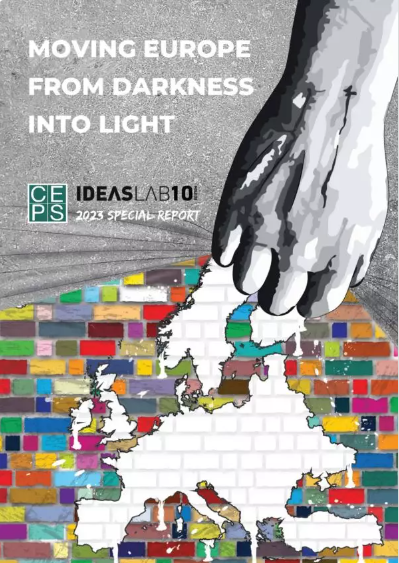 |
|
|
|
TECHNOCRATIC EUROPE
Barry Eichengreen lectured in November 2015 what lessons the Great Recession of now has for the interpretation of the Great Depression in the 30s. Friedman and Schwartz did not necessarily equal that only liquidity support was needed for banks. It is also become likely that even in the 30s it was necessary to recapitalize banks because they had become insolvent. He talked about the still fragile state of the financial sector, risks that goes along with it and about solutions. "Risks have not been solved, but were moved and concentrated. Banks have still insufficient capital buffers. A more powerful approach is needed. |
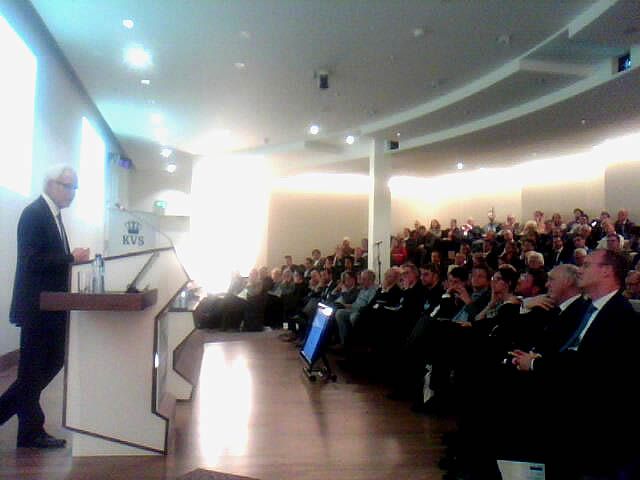
|
Is the EU too centralized? The causes in the member states and the solutions in the EU?
The majority of member states have no confidence in their own government and is therefore looking for a European solution. It is also a taboo to talk about other failing states, therefore the EU takes the "flight forward"; further European integration to camouflage the problems. Should the EU look much more to the bad apples in the EU, so that only then the system will become more resilient? The solution should be sought in strengthening the member states and reducing the pace of European cooperation. Are protest parties the result of a wave of willingness to change in the European population and exclusion of the member states by the EU? Glad protest parties fueling the debate on the EU, but will protest parties move toward the political center or will they blow the EU project? Those are the two possible scenarios, as protest parties come to power. But what about matters which fall at European level? |
|
|
|
|
|
| WARS AFTER 1945 |
The most violent breakup happened in Yugoslavia, in the Balkans. Four (Slovenia, Croatia, Bosnia and Herzegovina and FYR of Macedonia) out of six Yugoslav republics declared independence and for most of them a violent war ensued, in some parts lasting until 1995. The remaining two republics formed a new Federal Republic of Yugoslavia, under the direction of Slobodan Milošević. Milošević presided over the Kosovo War, and was overthrown after his government was weakened by NATO airstrikes against Yugoslavia.
The first war of the 21st century was a small war between Georgia and Russia from 8 to 22 August 2008 and has shattered any remaining illusions over the frontiers of the normative map of Europe. A small war, but one with massive implications. This was Europe’s first war of the 21st century, which has seen Russia acting in line with the European realpolitik models of the 19th and early 20th centuries. The rest of Europe drew profound conclusions from its dreadful history of the two world wars. The European Union has become a space where war between its nations is inconceivable, where enmities were overcome with reconciliation and integration. This West European space, coming as close as conceivable in practice to the Kantian ideal zone of ‘eternal peace’, has expanded to the East. But Russia today is intent on redrawing the map of Europe between this Europe, which is both peaceful and democratic, and the other Europe in which its dictatorial leadership is ready to go to war in order to satisfy its hunger for hegemonic power. |
|
Due to the get out of control of Euromaidan protests, the pro-Russian president Janoekovytsj lost the majority support of the Verkhovna Rada. This council dropped him off on February 22, 2014, and issued new elections. To this, protests broke out in several predominantly Russian-speaking parts of Ukraine. On the Crimean peninsula and in the Donbass Russian minded protest movements seized power and issued their own local referendums.
On March 17, 2014 independence in the Crimea was proclaimed and on March 18, 2014 Russia annexed the peninsula. The referendum is recognized by only two countries: Russia and Belarus. The other countries speak of an illegitimate annexation of Ukrainian territory, accusing Russia to encourage protests against the new Ukraine government to destabilize the country. A few months later, on May 11, 2014 the Donbass pro-Russian protest movements proclaimed independence of the People's Republic of Donetsk and People's Republic of Lugansk, who united in the Union of People's Republics. This led to an open military conflict between Ukraine army and the separatist forces of the self-proclaimed People's Republics of Donetsk and Lugansk. |
|
At dawn of 24 February 2022, Russia launched a full-scale invasion against the sovereign country Ukraine. Russian military vehicles crossed the Ukrainian border in several places.
|
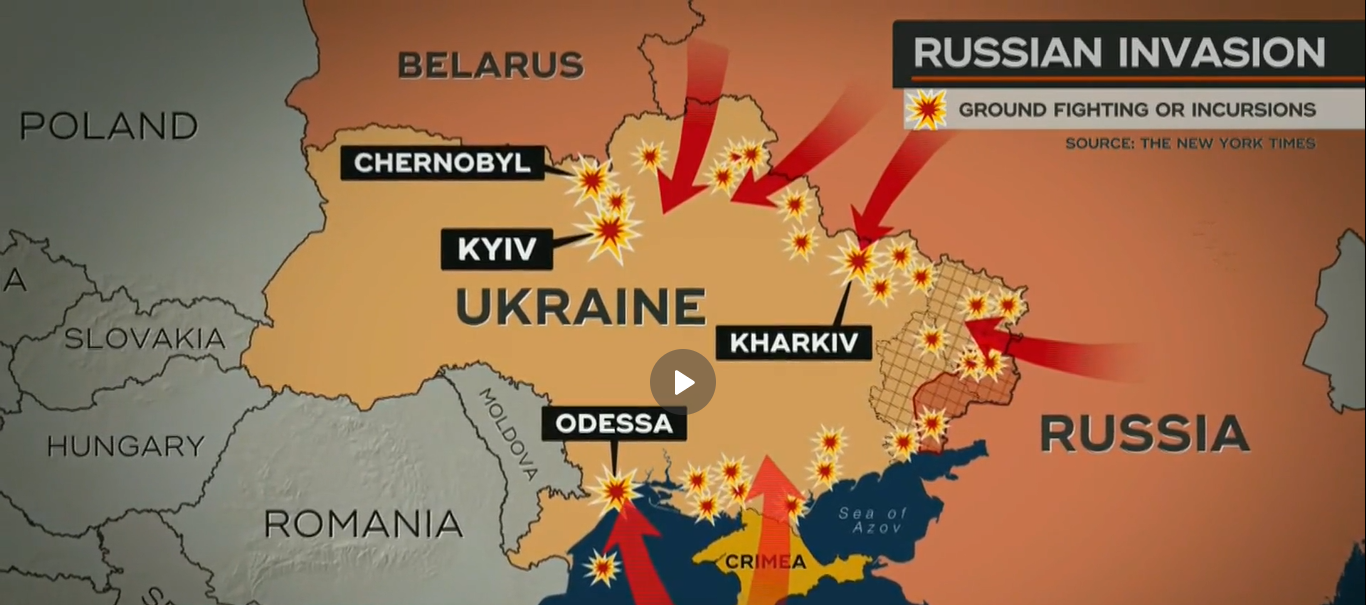
|
it seems no exaggeration to say that it is a further continuation of an attack on liberal democracy: | 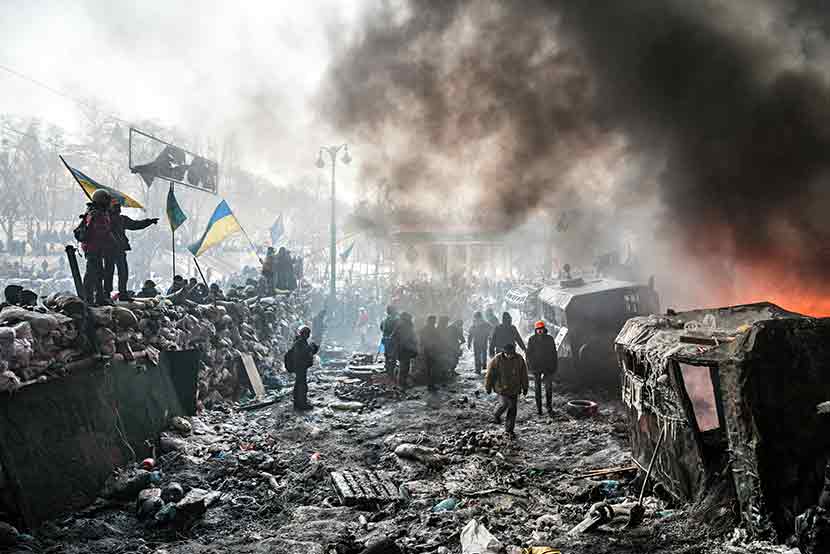
|
http://www.4pt.su/en |
|
| Document (with annexes) from the Russian Federation setting out its position regarding the alleged “lack of jurisdiction” of the Court in the case, 7 March 2022 |
| Statement of the heads of state or government, meeting in Versailles, on the Russian military aggression against Ukraine, 10 March 2022 |
| Interview by Gregor Peter Schmitz with George Soros |
The New York review of books published 24 April 2014 the article 'The Future of Europe' edited due to an interview by Gregor Peter Schmitz with George Soros. Parts of the following interview with George Soros by the Spiegel correspondent Gregor Peter Schmitz appear in their book, The Tragedy of the European Union: Disintegration or Revival?, just published by PublicAffairs. Gregor
Peter Schmitz: The conflict in Crimea and Ukraine has changed the shape of European and world politics, and we will come to it. But let us first talk about a subject on which you’ve taken a critical position over the years: the crisis of the European Union: With regard to the euro, isn’t the worst over? George Soros: If you mean that the euro is here to stay, you are right. That was confirmed by the German elections, where the subject was hardly discussed, and by the coalition negotiations, where it was relegated to Subcommittee 2A. Chancellor Angela Merkel is satisfied with the way she handled the crisis and so is the German public. They reelected her with an increased majority. She has always done the absolute minimum necessary to preserve the euro. This has earned her the allegiance of both the pro- Europeans and those who count on her to protect German national interests. That is no mean feat. So the euro is here to stay, and the arrangements that evolved in response to the crisis have become established as the new order governing the eurozone. This confirms my worst fears. It’s the nightmare I’ve been talking about. I’m hopeful that the Russian invasion of Crimea may serve as a wake-up call. Germany is the only country in a position to change the prevailing order. No debtor country can challenge it; any that might try would be immediately punished by the financial markets and the European authorities. Schmitz: If you said that to Germans, they would say: Well, we have already evolved a lot. We are more generous now and have modified our policy of austerity. Soros: I acknowledge that Germany has stopped pushing the debtor countries underwater. They are getting a little bit of oxygen now and are beginning to breathe. Some, particularly Italy, are still declining, but at a greatly diminished pace. This has given a lift to the financial markets because the economies are hitting bottom and that almost automatically brings about a rebound. But the prospect of a long period of stagnation has not been removed. It’s generally agreed that the eurozone is threatened by deflation but opposition from the German Constitutional Court and its own legal departments will prevent the European Central Bank (ECB) from successfully overcoming the deflationary pressures the way other central banks, notably the Federal Reserve, have done. The prospect of stagnation has set in motion a negative political dynamic. Anybody who finds the prevailing arrangements intolerable is pushed into an anti-European posture. This leads me to expect the process of disintegration to gather momentum. During the acute phase of the euro crisis we had one financial crisis after another. Now there should be a series of political rather than financial crises, although the latter cannot be excluded. Schmitz: You say that current arrangements are intolerable. What exactly needs to change? What needs to be reformed? Soros: At the height of the euro crisis, Germany agreed to a number of systemic reforms, the most important of which was a banking union. But as the financial pressures abated, Germany whittled down the concessions it had made. That led to the current arrangements, which confirm my worst fears.Schmitz: As we speak, European finance ministers are in the process of concluding an agreement on the banking union. What do you think of it? Soros: In the process of negotiations, the so-called banking union has been transformed into something that is almost the exact opposite: the reestablishment of national “silos,” or separately run banks. This is a victory for Orwellian newspeak.Schmitz: What’s wrong with it? Soros: The incestuous relationship between national authorities and bank managements. France in particular is famous for its inspecteurs de finance, who end up running its major banks. Germany has its Landesbanken and Spain its caixas, which have unhealthy connections with provincial politicians. These relationships were a major source of weakness in the European banking system and played an important part in the banking crisis that is still weighing on the eurozone. The proposed banking union should have eliminated them, but they were largely preserved, mainly at German insistence.Schmitz: That is a pretty drastic condemnation. How do you justify it? Soros: In effect, the banking union will leave the banking system without a lender of last resort. The proposed resolution authority is so complicated, with so many decision-making entities involved, that it is practically useless in an emergency. Even worse, the ECB is legally prohibited from undertaking actions for which it is not expressly authorized. That sets it apart from other central banks, which are expected to use their discretion in an emergency. But Germany was determined to limit the liabilities that it could incur through the ECB. As a result, member countries remain vulnerable to financial pressures from which other developed countries are exempt. That is what I meant when I said that over-indebted members of the EU are in the position of third-world countries that are overindebted in a foreign currency. The banking union does not correct that defect. On the contrary, it perpetuates it.Schmitz: You sound disappointed. Soros: I am. I left no stone unturned trying to prevent this outcome, but now that it has happened, I don’t want to keep knocking my head against the wall. I accept that Germany has succeeded in imposing a new order on Europe, although I consider it unacceptable. But I still believe in the European Union and the principles of the open society that originally inspired it, and I should like to recapture that spirit. I want to arrest the process of disintegration, not accelerate it. So I am no longer advocating that Germany should “lead or leave the euro.” The window of opportunity to bring about radical change in the rules governing the euro has closed.Schmitz: So, basically, you are giving up on Europe? Soros: No. I am giving up on changing the financial arrangements, the creditor–debtor relationship that has now turned into a permanent system. I will continue to focus on politics, because that is where I expect dramatic developments.Schmitz: I see. Obviously, people are concerned about the rise of populist movements in Europe. Do you see any opportunity to push for more political integration, when the trend is toward disintegration? Soros: I do believe in finding European solutions for the problems of Europe; national solutions make matters worse.
|
Schmitz: It seems the pro-Europeans are often silent on important issues because they are afraid that speaking up might increase support for the extremists—for example, in the case of the many refugees from the Middle East and Africa who hoped to reach Europe and were detained on the Italian island of Lampedusa. Soros: Like it or not, migration policy will be a central issue in the elections. We must find some alternative to xenophobia.
Schmitz: What do you propose to do about it? Soros: I have established an Open Society Initiative for Europe—OSIFE for short. One of its first initiatives is Solidarity Now, in Greece. The original idea was to generate European solidarity with the plight of the Greek population that is suffering from the euro crisis and Greek solidarity with the plight of the migrants, who experience inhuman conditions and are persecuted by the ultranationalist Golden Dawn party. It took us some time to get the project off the ground, and by the time we did, it was too late to generate European solidarity with the Greeks because other heavily indebted countries were also in need of support. So we missed that boat, but our initiative has had the useful by-product of giving us a better insight into the migration problem.Schmitz: What have you learned? Soros: That there is an unbridgeable conflict between North and South on the political asylum issue. The countries in the North, basically the creditors, have been generous in their treatment of asylum seekers. So all the asylum seekers want to go there, particularly to Germany. But that is more than they can absorb, so they have put in place a European agreement called Dublin III, which requires asylum seekers to register in the country where they first enter the EU. That tends to be the South, namely, Italy, Spain, and Greece. All three are heavily indebted and subject to fiscal austerity. They don’t have proper facilities for asylum seekers, and they have developed xenophobic, anti-immigrant, populist political movements. Asylum seekers are caught in a trap. If they register in the country where they arrive, they can never ask for asylum in Germany. So, many prefer to remain illegal, hoping to make their way to Germany. They are condemned to illegality for an indefinite period. The miserable conditions in which they live feed into the anti-immigrant sentiment.Schmitz: Looking at other European issues, aren’t your foundations also very involved in the problems of the Roma (Gypsies)? Soros: Yes, we have been engaged in those issues for more than twenty-five years. The Roma Education Fund has developed effective methods of educating Roma children and strengthening their Roma identity at the same time. If this were done on a large-enough scale it would destroy the hostile stereotype that stands in the way of the successful integration of the Roma. As it is, educated Roma can blend into the majority because they don’t fit the stereotype but the stereotype remains intact. This is another instance where the European Commission is having a positive effect. I look to the European Structural funds to scale up the programs that work.Schmitz: What do you think of Vladimir Putin’s recent policies with respect to Ukraine, Crimea, and Europe? Soros: Now you are coming to the crux of the matter. Russia is emerging as a big geopolitical player, and the European Union needs to realize that it has a resurgent rival on its east. Russia badly needs Europe as a partner, but Putin is positioning it as a rival. There are significant political forces within the Russian regime that are critical of Putin’s policy on that score. Schmitz: Can you be more specific? Soros: The important thing to remember is that Putin is leading from a position of weakness. He was quite popular in Russia because he restored some order out of the chaos. The new order is not all that different from the old one, but the fact that it is open to the outside world is a definite improvement, an important element in its stability. But then the prearranged switch with Dmitry Medvedev from prime minister to president deeply upset the people. Putin felt existentially threatened by the protest movement. He became repressive at home and aggressive abroad. That is when Russia started shipping armaments to the Assad regime in Syria on a massive scale and helped turn the tide against the rebels. The gamble paid off because of the preoccupation of the Western powers—the United States and the EU—with their internal problems. Barack Obama wanted to retaliate against Syria’s use of chemical weapons. He asked for congressional approval and was about to be rebuffed when Putin came to the rescue and persuaded Assad to voluntarily surrender his chemical weapons. That was a resounding diplomatic victory for him. Yet the spontaneous uprising of the Ukrainian people must have taught Putin that his dream of reconstituting what is left of the Russian Empire is unattainable. He is now facing a choice between persevering or changing course and becoming more cooperative abroad and less repressive at home. His current course has already proved to be self-defeating, but he appears to be persevering.Schmitz: Is Russia a credible threat to Europe if its economy is as weak as you say? oros: The oligarchs who control much of the Russian economy don’t have any confidence in the regime. They send their children and money abroad. That is what makes the economy so weak. Even with oil over $100 a barrel, which is the minimum Russia needs to balance its budget, it is not growing. Putin turned aggressive out of weakness. He is acting in self-defense. He has no scruples, he can be ruthless, but he is a judo expert, not a sadist—so the economic weakness and the aggressive behavior are entirely self-consistent.Schmitz: How should Europe respond to it?
Soros: It needs to be more united, especially in response to Russian aggression in Ukraine. Putin prides himself on being a geopolitical realist. He respects strength and is emboldened by weakness. Yet there is no need to be permanently adversarial. Notwithstanding the current situation in Ukraine, the European Union and Russia are in many ways complementary; they both need each other. There is plenty of room for Russia to play a constructive role in the world, exactly because both Europe and the United States are so preoccupied with their internal problems.Schmitz: How does that translate into practice, particularly in the Middle East? Soros: It has totally transformed the geopolitical situation. I have some specific ideas on this subject, but it is very complicated. I can’t possibly explain it in full because there are too many countries involved and they are all interconnected.
|
Schmitz: Give it a try. Soros: I should start with a general observation. There are a growing number of unresolved political crises in the world. That is a symptom of a breakdown in global governance. We have a very rudimentary system in place. Basically, there is only one international institution of hard power: the UN Security Council. If the five permanent members agree, they can impose their will on any part of the world. But there are many sovereign states with armies; and there are failed states that are unable to protect their monopoly over the use of lethal force or hard power. The cold war was a stable system. The two superpowers were stalemated by the threat of mutually assured destruction, and they had to restrain their satellites. So wars were fought mainly at the edges. After the collapse of the Soviet Union, there was a brief moment when the United States emerged as the undisputed leader of the world. But it abused its power. Under the influence of the neocons, who argued that the United States should use its power to impose its will on the world, President George W. Bush declared “war on terror” and invaded Iraq under false pretenses.
That was a tragic misinterpretation of the proper role of hegemonic or imperial power. It is the power of attraction—soft power—that ensures the stability of empires. Hard power may be needed for conquest and self-protection, but the hegemon must look after the interests of those who depend on it in order to secure their allegiance instead of promoting only its own interests. The United States did that very well after World War II, when it established the United Nations and embarked on the Marshall Plan. But President Bush forgot that lesson and destroyed American supremacy in no time. Schmitz: Recently the crisis in Ukraine has overshadowed all the others. Soros: Indeed. Ukraine and in particular Crimea are of much greater interest to Russia than anything in the Middle East. Putin woefully misjudged the situation. Last autumn he had no difficulty in outmaneuvering the European Union, which was hamstrung by its internal political and financial problems. Under German leadership it offered too little and demanded too much. |
Putin could easily offer a better deal to Ukrainian President Yanukovych. But the Ukrainian people rebelled, upsetting the calculations of both sides. The rebellion wounded Putin in his Achilles heel. The idea of a spontaneous rebellion simply did not enter into his calculations. In his view the world is ruled by power and those in power can easily manipulate public opinion. Failure to control the people is a sign of weakness.
Accordingly, he made it a condition of his assistance that Yanukovych should repress the rebellion. But the use of force aroused the public and eventually Yanukovych was forced to capitulate. This could have resulted in a stalemate and the preservation of the status quo with Ukraine precariously balanced between Russia and Europe, and a corrupt and inept government pitted against civil society. It would have been an inferior equilibrium with the costs exceeding the benefits for all parties concerned. But Putin persisted in his counterproductive approach. Yanukovych was first hospitalized and then sent to Sochi to be dressed down by Putin. Putin’s instructions brought the confrontation to a climax. Contrary to all rational expectations, a group of citizens armed with not much more than sticks and shields made of cardboard boxes and metal garbage can lids overwhelmed a police force firing live ammunition. There were many casualties, but the citizens prevailed. It was a veritable miracle. Schmitz: How could such a thing happen? How do you explain it? Schmitz: What is your idea of the right choice? Soros: A large-scale technical and financial assistance program for Ukraine. The EU and the US, under the leadership of the International Monetary Fund, are putting together a multibillion-dollar rescue package that will save the country from financial collapse. But that is not enough: Ukraine also needs outside assistance that only the EU can provide: management expertise and access to markets. Ukraine is a potentially attractive investment destination. But realizing this potential requires improving the business climate by addressing the endemic corruption and weak rule of law. The new regime in Ukraine is eager to confront that task. But only the EU can open up its domestic market and provide political risk insurance for investing in Ukraine. Ukraine in turn would encourage its companies to improve their management by finding European partners. Thus Ukraine would become increasingly integrated in the European common market. That could also provide a much-needed fiscal stimulus for the European economy and, even more importantly, help to recapture the spirit that originally inspired the European Union. |
| Marshall, from 'Invitation' to Plan |
March 12, 1947, the President of the US announced the Truman Doctrine: Communism must be contained all over the world. Senior diplomats at the ministry have also been concerned for months about the threat of communism in war-torn Europe. It was up to Marshall to tie up all the loose ends, various plans for humanitarian, economic and political aid to Europe, and turn it into a purposeful policy.
This was followed by the Marshall 'invitation', the main ingredients of a new policy: massive financial support for Europe, the reconstruction of West Germany and European cooperation and economic integration and formalised on April 3, 1948, when President Truman signed the Economic Recovery Act of 1948. It became known as the Marshall Plan. Europeans had to put together a workable plan for reconstruction within those frameworks. |